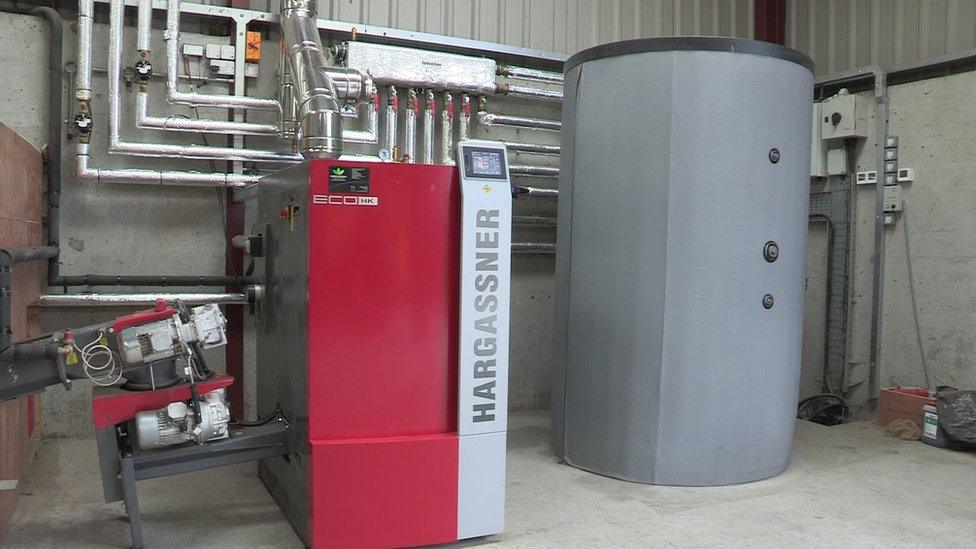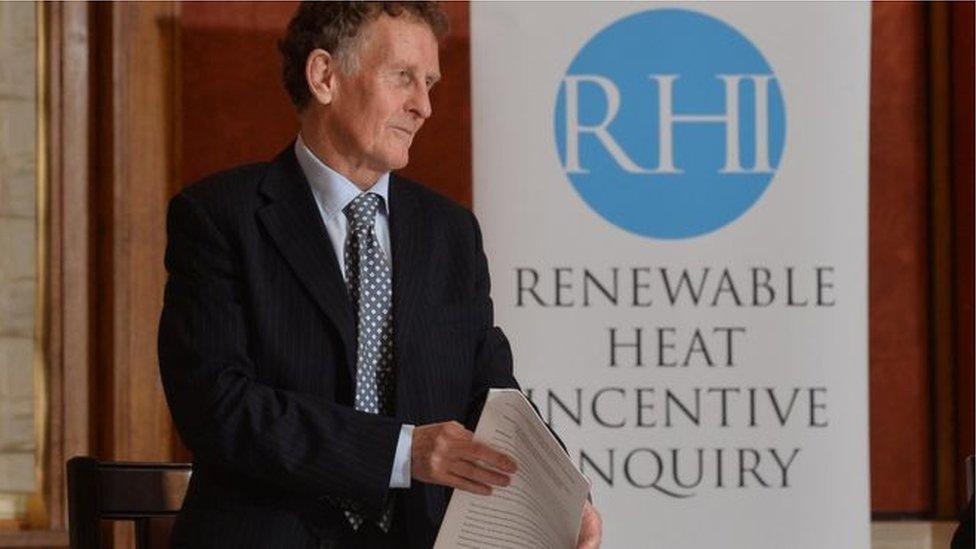RHI scheme could close or face big cuts to payments
- Published

A biomass boiler, similar to those owned by some RHI scheme claimants
The RHI scheme could be closed or participants face further big cuts in their payments under options for the future of the scheme.
The Department for the Economy has published the results of a consultation on the future of the ill-fated Renewable Heat Incentive (RHI) scheme.
It appears boiler owners could either face a compulsory buy-out or a substantial cut in their payments.
One boiler owner said it would mean a "financial disaster for participants".
An earlier cut in payment levels is the subject of an ongoing legal action at the Court of Appeal.
Officials are expected to decide on the preferred course shortly, with the necessary legislation then being laid before parliament.
'Pay money back'
The consultation document set out eight possible options for the future.
But the department said only two of them would result in the 12% rate of return originally envisaged.
One of them would see a substantial cut in tariffs with boiler owners expected to pay money back to the department to recoup what is regarded as prior "overcompensation".
The other could mean scheme closure with boiler owners compensated to reflect the fact that its 20-year term had to be cut short.
But the consultation document said that due to higher than anticipated payments already received many scheme participants would not be entitled to any compensation at all.
Officials said the department will "endeavour to deliver an ongoing tariff structure" in line with the Northern Ireland Executive's commitment to hit a target of 10% of renewable heat by 2020 and would consider how the impact of any proposed change would affect it.
About 1,200 businesses are in the scheme, many of them in agriculture, particularly poultry farms.
In the absence of a Northern Ireland Assembly it will be up to the Secretary of State Karen Bradley to sponsor the necessary legislation at Westminster.
- Published7 November 2017

- Published14 December 2018
